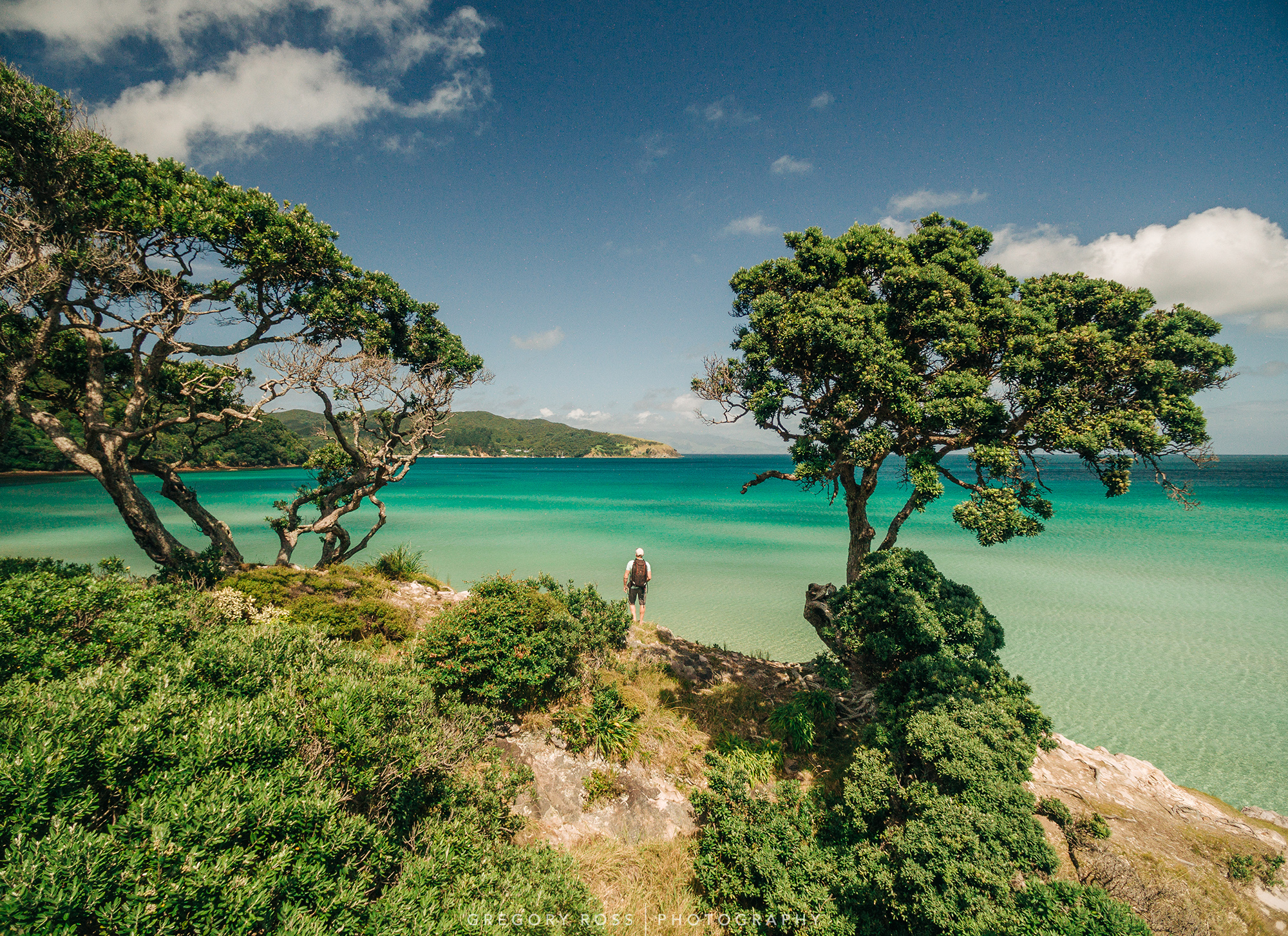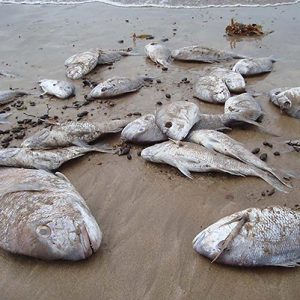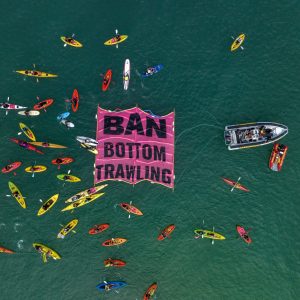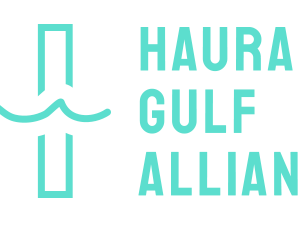
Media release: 19 November 2021
Conservation groups and recreational fishers have banded together for the first time to call for an end to destructive mobile bottom contact fishing methods that destroy the seabed in the Hauraki Gulf Marine Park.
The move follows the release today of an Horizon Research poll, commissioned by the Hauraki Gulf Forum, that shows that 84% of the public who live in the vicinity of the Hauraki Gulf do not want mobile bottom contact fishing to continue due to the destructive impact it has on marine species and ecosystems on the seafloor. This is in contrast to the Government’s recent Revitalising The Gulf proposal which allows these activities to continue in the future.
The allied groups are calling for an end to all destructive mobile bottom fishing such as trawling, scallop dredging and Danish seining.
The unprecedented alliance includes the Royal Forest & Bird Protection Society (Forest & Bird), Greenpeace Aotearoa, WWF-NZ, Environmental Defence Society (EDS), the Environment and Conservation Organisations of New Zealand (ECO), the New Zealand Sports Fishing Council (NZSFC), LegaSea, the New Zealand Underwater Association and the New Zealand Angling & Casting Association.
“This group represents a combined 1.2 million people and has banded together for the first time on an issue we see as one of the most important environmental impacts facing this taonga in Tāmaki-makau-rau. The Hauraki Gulf/Tīkapa Moana is recognised globally as a biodiversity hotspot for many species and it is one of New Zealand’s most valued and intensively used coastal spaces,” said Dr Aroha Spinks (WWF-NZ)
“The Hauraki Gulf Forum’s recently released poll provides stark proof that an overwhelming majority of people think it’s time to end fishing methods that crush seafloor animals to rubble, rip up the sea bed and leave it barren with little prospect of recovery” said Barry Weeber, Co-chair of ECO. The poll showed 84% supported banning bottom contact fishing methods, with only 3% opposed. 13% were not sure or had no opinion.
“It is clear from the latest State of the Gulf 2020 report that the Hauraki Gulf ecosystem is under enormous pressure, and is in a far worse state now than it was 20 years ago when the Hauraki Gulf Marine Park was established. There are widespread kina barrens, significant benthic habitat loss such as important three dimensional nursery habitat for fish, overfishing is occurring, tarakihi, crayfish and bait fish are in trouble and many shellfish stocks have collapsed,” said Bob Gutsell, New Zealand Sport Fishing Council President.
“We were devastated when the Government failed in its latest plan to ban bottom contact fishing methods from the Gulf. This was the wrong decision. Instead, the Government will introduce bottom trawling corridors and freeze the existing scallop bed footprint, after pressure from commercial fishers,” said Sam Woolford, LegaSea lead.
“The Hauraki Gulf is in a really grim state because of the way we are treating it.
We know mobile bottom contact fishing is one of the most damaging practices and is doing great harm to the seafloor animals and protected species. The Government needs to get on with it and take the health of the Gulf seriously. All of us NGOs, and the majority of the population are saying to end this destructive fishing practice, so we really hope the Minister makes the right call” said Lissy Fehnker-Heather, Regional Conservation Manager – Forest & Bird.
“Bottom trawling is the most destructive fishing method there is. To allow the Gulf and the marine life that lives there to recover, it’s clear it’s got to stop. We call on the Government to put ocean protection first, so that we can have a thriving Gulf for the future” said Greenpeace Aotearoa spokesperson Ellie Hooper.
“It’s time to put to bed commercial arguments supporting bottom trawling. It’s an archaic method of catching fish. Towing heavy nets and equipment repeatedly across the seabed crushes shellfish and other sedentary creatures, leaving rubble and a wasteland. Instead of resisting change, the commercial fishing sector needs to put its efforts into developing alternatives which don’t destroy the Hauraki Gulf’s precious habitats. Doing so will mean a more productive marine environment, with more fish, in the future,” said EDS Policy Director Raewyn Peart.





